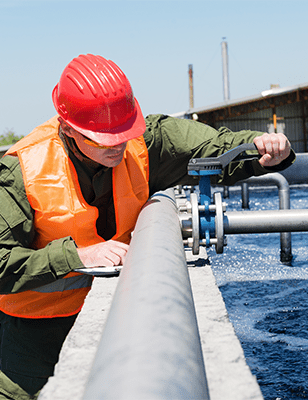Population growth, climate change and ageing infrastructure mean the water sector in the UK faces growing pressure to address a series of major challenges. The need to address water scarcity and environmental quality, while improving the resilience of systems and services to customers, is crucial. In fact, water companies and regulators alike are facing a range of issues more complex than at any time since privatisation in 1989.
While there has never been a more challenging time to work in the water industry, there remain huge opportunities, with scope to innovate like never before at scale. So how can water companies face these challenges and deliver billion-pound programmes in a sector which hasn’t attempted projects of this magnitude?
A step-change in complexity
There are several major strategic projects in the pipeline, and it’s time to consider procurement, engagement with the market and the type of supply chain needed in various areas that wouldn’t have been adopted in the past. Instead of needing 30 engineers to deliver a project, 400 might now needed at one time. This is a very steep challenge, attracting the right calibre of capable people within the time frame needed. There will also be a step-change in complexity. Some projects will require international experience in a way we haven’t seen in the water industry before, in areas such as water processing and tunnelling.
Another issue which cannot be ignored is the fact that there are many other major infrastructure projects happening globally in various sectors, and organisations will prioritise their opportunity pipeline globally. Water companies need to find ways to make major schemes sufficiently interesting for a supply chain that can choose a transport project overseas over a UK-based water project.
Big pockets with a big budget
For large, global organisations prioritising water projects, they must consider whether they have the capacity to mobilise people to deliver the work, whether they have big pockets for a big budget, if they have the prospects to win the work and how much risk there will be. Pushing too much risk into the supply chain may not seem very appealing for those who end up winning a job that’s hard to deliver. Water companies have been looking in AMP7 to regain the former status of expert clients – the large engineering delivery teams within their own organisations who can have a better handle on the risks. But these often had the processes and mechanism to deal with £100million projects – not the projects in the billions which we are foreseeing.
There are also complicated environmental consenting aspects to add to the mix, which can be a regular occurrence for other major infrastructure projects, such as seen in the transportation sector, but not something the water industry has a lot of experience with.
Lessons from overseas
So, how do we tackle these challenges? We need to look at lessons from other sectors and countries. Take the nuclear sector. They’re used to mobilising large multidisciplinary teams to deliver major projects. Whilst £100million+ projects would be a big deal for the water sector, that would be small in the eyes of the nuclear industry. 75% of nuclear experience comes from teams from outside of the UK, and water organisations must also be considering support from companies with global cross-sector experience. Another way UK water companies can make their schemes more appealing is by looking at big CAPEX models favoured overseas. We should look to places like Canada and Australia which have adopted progressive design schedules, bringing out portions of a contract early ahead of schedule.
Sustainability at the heart
Above all, it’s crucial that water organisations work with partners that understand the wider sustainability aspects of projects. Companies with cross-sector, global experience can bring insight from other major schemes and lessons around environmental consent, ensuring that net biodiversity is at the heart of a project and not an afterthought. This experience can support water organisations in balancing the need for a new water source which may be very carbon intensive with the urgent requirement for fresh water for tens and thousands of people. With the right expertise, a consultant can provide the knowledge needed to consider less carbon-intensive options that drive the right solution for any given project.
The environmental agenda has moved far beyond where we were even two or three years ago, and engineering design continues to become more automated than ever before. With larger and different schemes coming up, we ultimately need a fresh approach to our supply chains.




